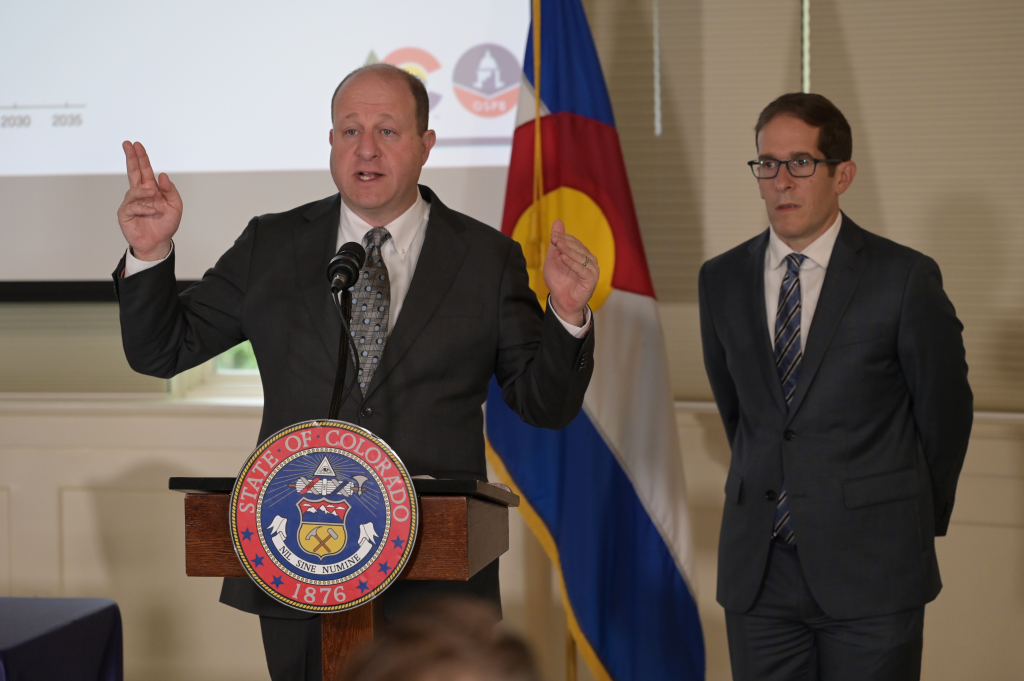
Almost one-third of the budget cuts and sweeps of unused money that Gov. Jared Polis used to close a $249 million budget hole will come from Medicaid, and providers are trying to figure out how much disruption that will cause for them and their patients.
H.R. 1, known as the “Big Beautiful Bill,” blew a roughly $783 million hole in the state budget in July, because Colorado’s tax laws automatically adjust to stay in harmony with the federal government’s. The legislature opted to undo some of those changes during a special session in August and gave Polis the authority to fill the rest of the gap.
About $79.2 million of the $252 million in cuts came from the Colorado Department of Health Care Policy and Financing, which runs Medicaid in the state. The list includes a mix of reductions in the rates paid to people who provide care, unused funds swept from specific programs and plans to review some care types more strictly before paying.
The largest cut, worth roughly $38.3 million, would roll back most of a 1.6% increase that most providers expected to get this year. Since providers received slightly higher rates in the first months of the fiscal year, it will work out to about a 0.4% increase, which is in line with recent years, the department said.
Denver Health estimated the rollback would cost the city’s safety-net hospital about $5 million. The health system isn’t planning any layoffs or service reductions, but could cut back on nonessential maintenance and technology updates, CEO Donna Lynne said. As it was, the increase only partially offset growth in costs in recent years, she said.
“We were already trying to absorb the difference between medical inflation and the 1.6%,” she said. The American Hospital Association estimated hospital costs rose about 5.1% in 2024.
The Colorado Hospital Association said its members were “disappointed” with the rollback, especially since they expect to lose Medicaid funding under provisions of H.R. 1 in 2027 and beyond. An unknown number of patients will lose Medicaid coverage due to new work requirements, and states won’t be able to draw down as much federal funding for hospitals because of limits on provider taxes.
“We recognize the tough choices required in this budget process, but reductions to provider rates — particularly alongside other health care cuts stemming from H.R. 1 — add to the challenges ahead,” the association said in a statement. “CHA and our members remain committed to working with the governor and legislators to identify solutions that protect health care funding and sustain access to care across Colorado.”
Dentists also will receive less for treating Medicaid patients than they anticipated, with about $2.5 million in reductions to planned increases. The Colorado Dental Association said it was waiting for details about which services would take cuts, and how deep they would go.
Other Medicaid cuts include:
$7 million from reviewing applied behavior analysis claims for improper billing. The therapy attempts to teach daily living skills to people with severe autism.
$6.1 million from requiring prior authorization for more than 24 psychotherapy visits in one year
$5.6 million that Colorado was going to spend to keep children covered by Medicaid until age 3. The Centers for Medicare and Medicaid Services revoked permission for the state to do that.
$4.4 million from a fund to raise pay in nursing homes above $15 per hour. The state’s minimum wage will be over $15 next year, making the fund largely irrelevant.
$3 million from reducing the “community connector” benefit to bring kids with disabilities into integrated settings
$3 million from reducing incentives for behavioral health care improvements
$2.7 million from benchmarking the state’s rate for applied behavior analysis for autism to 95% of the rate in comparable states
$1.7 million from requiring prior authorization to administer 17 or more drug tests to the same person in one year
$1.5 million from starting payments to small, rural and pediatric providers in January 2026 instead of July 2025
$1.5 million from reducing the rate paid to family caregivers for people with disabilities
$750,000 from reducing incentives to coordinate primary care
$500,000 in unused funding appropriated for family planning services to undocumented people
$500,000 from training for providers about screening patients for substance misuse and referring them to treatment
$131,000 in funding to advertise Cover All Coloradans, which offers Medicaid-like coverage to undocumented people



